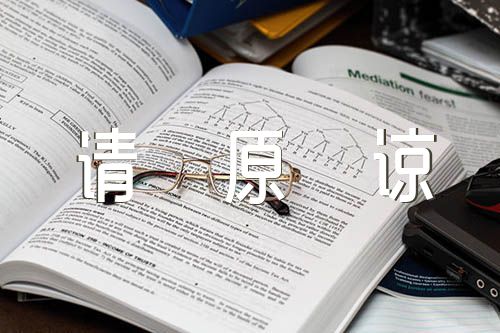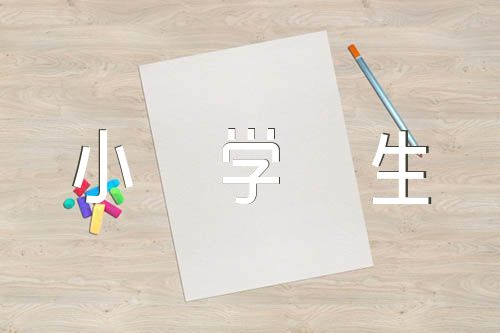2023高考英语北京卷试卷带答案锦集三篇
初中毕业考试,简称“期中考试”,是检验初中毕业生是否达到初中毕业水平的考试。以下是小编整理的2023高考英语北京卷试卷带答案锦集三篇,欢迎阅读与收藏。

2023高考英语北京卷试卷带答案篇1
第一部分 知识运用(共两节,30分)
第一节(共15分)
阅读下面短文,掌握其大意,从每题所给的A、B、C、D四个选项中,选出最佳选项,并在答题卡上将该项涂黑。
【1~10题答案】
【答案】1. B 2. D 3. C 4. A 5. B 6. C 7. A 8. D 9. C 10. B
第二节(共15分)
A
【11~13题答案】
【答案】11. would throw
12#FormatImgID_5# exactly
13. had arrived
B
【14~16题答案】
【答案】14. seen
15. cities 16. has established
C
【17~20题答案】
【答案】17. to 18. where
19. to address
20. facing
第二部分 阅读理解(共两节,38分)
第一节(共28分)阅读下列短文,从每题所给的A、B、C、D四个选项中,选出最佳选项,并在答题卡上将该项涂黑。
【21~23题答案】
【答案】21. B 22. C 23. B
【24~27题答案】
【答案】24. A 25. D 26. B 27. C
2023高考英语北京卷试卷带答案篇2
高考英语听力是大多数同学的弱项,对待英语听力,考生除了听就是从题目和选项上下功夫,不同意思的那一个英语选项就不用考虑了,帮助自己筛选最有可能的选项。
接下来是完形填空,得高分的技巧就是前后文联系,找到意思相近的那一个。在英语选项中猜出正确答案很难,但结合英语短文的大致意思就不会太难了。
高考英语阅读理解非常耗费时间,所以考生一定要注意答题的速度,想要无耻得高分,那就将选项代入原文,语义通顺,符合逻辑就是正确的选项。
其次是高考英语短文改错,一般考点有a、the互换,is、are的用法等等,都是常考的一些,英语短文改错的高分小技巧就是考生除了通读整个文章,就是要着重注意这几个地方,
最后是高考英语作文,无耻得分技巧就在于考生掌握的万能作文开头和结尾,以及固定搭配,还有高级句式的多少了,一般来说,除了高考生自己简单的叙述之外,多运用以上小编提到的这些技巧,多几个英语的复合句,作文就很容易得高分。
不过以上所以提到的高考英语无耻高分技巧,更多的都是依赖考生的基础和对高中英语掌握的程度,而不是真的靠运气和各种聪明的小技巧来活的心里安慰和高考英语高分的结果的。
除了小编给各位即将高考生的这些技巧和建议之外,更多的还是要趁着高考前这几天的时间里多加努力。
如果考生对英语失去了学习的激情和兴趣,那就看一些关于英语的励志电影,重新好会学习英语的快乐。
2023高考英语北京卷试卷带答案篇3
第一部分 知识运用(共两节,30分)
第一节(共15分)
阅读下面短文,掌握其大意,从每题所给的A、B、C、D四个选项中,选出最佳选项,并在答题卡上将该项涂黑。
I was always timid(羞怯的). Being new to the school made me even ____1____ , so it was surprising I’d ____2____ to anyone around me. Now I was paying the price﹣to write a five﹣page essay on “Why I Should Not Talk in Class”. That would take all night!
After I got home, though. I took my time petting the cat﹣postponing the pain.
When I finally sat down to ____3____, I began with the reasons Ms Black would want to hear.
Talking kept me and my neighbours from ____4____. One paragraph down; now what? I chewed on my pencil. Aha! What if talking were the first step towards life as a criminal? Without the education I was throwing away, I’d turn to theft and go to prison. When I got out, people would say, “She used to talk in class.” The pages began ____5____.
But when mum got home from work, I was still ____6____, “Five pages! That’s impossible!”
“Well, you’d better get back to work,” she said. “and I want to read it when you’re through.”
Soon after dinner, I handed the essay to mum. I half expected a____7____﹣at least an “I hope you’ve learned your lesson”. ____8____, mum laughed and laughed as she read.
The next day, when Ms Black read the essay to the class, everyone laughed. I could ____9____ they weren’t making fun of me: they laughed because I had the power to tell a funny story. My____10____ still needed some nudging(激发), but I did learn I wasn’t shy in print.
1. A. freer B. shyer C. calmer D. happier
2. A. nod B. point C. listen D. chat
3. A. weep B. rest C. write D. read
4. A. learning B. playing C. planning D. laughing
5. A. standing out B. flying by C. breaking up D. checking in
6. A. celebrating B. longing C. complaining D. warning
7. A. lecture B. reason C. reward D. solution
8. A. Therefore B. Moreover C. Meanwhile D. Instead
9. A. hope B. imagine C. tell D. predict
10. A. patience B. confidence C. tolerance D. independence
第二节(共15分)
A
阅读下面短文,根据短文内容填空。在未给提示词的空白处仅填写1个恰当的单词,在给出提示词的空白处用括号内所给词的正确形式填空。
Every culture is riddled with unwritten rules, such as ones on punctuality (守时). I’m British. Soon after moving to Switzerland, I ____11____(throw) a house-warming party and was greatly surprised when all 30 guests showed up ____12____(exact) on time. Years later, having moved to France. I turned up at the appointed hour for a dinner, only to find that no other guest____13____(arrive) and my hostess was still in her sleeping suit.
B
阅读下面短文,根据短文内容填空。在未给提示词的空白处仅填写1个恰当的单词,在给出提示词的空白处用括号内所给词的正确形式填空。
Mangroves, known as “red forest” in China, grow between land and sea, characterised by their complex roots. When ____14____(see) from afar, the mangrove forests appear more splendid.
Mangroves can help soften waves and protect ____15____(city) from coastal winds. For these reasons, they are praised as “coastal guardians”. Up to now, China ____16____(establish) a number of protected areas with mangroves.
C
阅读下面短文,根据短文内容填空。在未给提示词的空白处仅填写1个恰当的单词,在给出提示词的空白处用括号内所给词的正确形式填空。
Nina has run marathons in 32 countries. All of her runs have a guiding purpose: to call attention ____17____ global water issues. Nina recently finished her year-long series of runs in Chicago, ____18____ thousands were attending a water conference.She called for action ____19____(address)the struggles of people around the world ____20____(face) “too little water or too dirty water”. Her efforts have encouraged others to take part by running through a global campaign called“Run Blue”.
第二部分 阅读理解(共两节,38分)
第一节(共28分)阅读下列短文,从每题所给的A、B、C、D四个选项中,选出最佳选项,并在答题卡上将该项涂黑。
The International Olympic Committee(IOC)Young Leaders programme empowers talents to make a positive difference in their communities through sport. Twenty-five Young Leaders are being selected every two years for a four-year period. They promote the Olympic values, spreading the message of sport for good.
To be an IOC Young Leader, you need to first complete the 4-Week Learning Sprint (冲刺).
4-Week Learning Sprint
The 4-Week Learning Sprint, which will take place during November 2023, is a virtual learning programme. The sessions can be attended live or watched back after they are made available on the IOC channel. Each week, participants will be asked to complete a topic﹣specific reflection task.
The 4-Week Learning Sprint is open to anyone, with the target audience aged between 20 and 28.
After successfully completing the 4-Week Learning Sprint, you will need to submit a plan for a sport﹣based project, which you will work on if selected as an IOC Young Leader.
Requirements for the Applicants
?You have successfully completed the 4-Week Learning Sprint.
?You have completed your high school studies.
?You have at least one year of work experience.
?You have strong public speaking skills.
?You are self-motivated and committed.
?You are passionate about creating positive change in your community.
?You are open to being coached and advised by experts and peers (同伴).
?You are able to work with people from different backgrounds.
21. In the 4-Week Learning Sprint, participants will ________.
A. create change in their community B. attend a virtual learning programme
C. meet people from different backgrounds D. promote the IOC Young Leaders project
22. If selected as an IOC Young Leader, one will need to ________.
A. complete a reflection task each week B. watch sports on the IOC channel
C. work on a sport-based project D. coach and advise their peers
23. Which is a requirement for the applicants?
A. Spreading the message of sport for good. B. Having at least one-year work experience.
C#FormatImgID_1# Showing great passion for project planning. D. Committing themselves to becoming an expert.
Sitting in the garden for my friend’s birthday. I felt a buzz (振动) in my pocket. My heart raced when I saw the email sender’s name. The email started off: “Dear Mr Green, thank you for your interest” and “the review process took longer than expected.” It ended with “We are sorry to inform you…”and my vision blurred (模糊). The position—measuring soil quality in the Sahara Desert as part of an undergraduate research programme — had felt like the answer I had spent years looking for.
I had put so much time and emotional energy into applying, and I thought the rejection meant the end of the road for my science career.
So I was shocked when, not long after the email, Professor Mary Devon, who was running the programme, invited me to observe the work being done in her lab. I jumped at the chance, and a few weeks later I was equally shocked—and overjoyed—when she invited me to talk with her about potential projects I could pursue in her lab. What she proposed didn’t seem as exciting as the original project I had applied to, but I was going to give it my all.
I found myself working with a robotics professor on techniques for collecting data from the desert remotely. That project, which I could complete from my sofa instead of in the burning heat of the desert, not only survived the lockdown but worked where traditional methods didn’t. In the end, I had a new scientific interest to pursue.
When I applied to graduate school, I found three programmes promising to allow me to follow my desired research direction. And I applied with the same anxious excitement as before. When I was rejected from one that had seemed like a perfect fit, it was undoubtedly difficult. But this time I had the perspective (视角) to keep it from sending me into panic. It helped that in the end I was accepted into one of the other programmes I was also excited about.
Rather than setting plans in stone, I’ve learned that sometimes I need to take the opportunities that are offered, even if they don’t sound perfect at the time, and make the most of them.
24. How did the author feel upon seeing the email sender’s name?
A. Anxious. B. Angry. C. Surprised. D. Settled.
25. After talking with Professor Devon, the author decided to ________.
A. criticise the review process B. stay longer in the Sahara Desert
C. apply to the original project again D. put his heart and soul into the lab work
26. According to the author, the project with the robotics professor was ________.
A. demanding B. inspiring C. misleading D. amusing
27. What can we learn from this passage?
A. An invitation is a reputation. B. An innovation is a resolution.
C. A rejection can be a redirection. D. A reflection can be a restriction.
In recent years, researchers from diverse fields have agreed that short-termism is now a significant problem in industrialised societies. The inability to engage with longer-term causes and consequences leads to some of the world’s most serious problems: climate change, biodiversity collapse, and more. The historian Francis Cole argues that the West has entered a period where “only the present exists, a present characterised at once by the cruelty of the instant and by the boredom of an unending now”.
It has been proved that people have a bias (偏向) towards the present, focusing on loud attractions in the moment at the expense of the health, well-being and financial stability of their future selves or community. In business, this bias surfaces as short-sighted decisions. And on slow-burning problems like climate change, it translates into the unwillingness to make small sacrifices (牺牲) today that could make a major difference tomorrow. Instead, all that matters is next quarter’s profit, or satisfying some other near-term desires.
These biased perspectives cannot be blamed on one single cause. It is fair to say, though, that our psychological biases play a major role. People’s hesitancy to delay satisfaction is the most obvious example, but there are others.One of them is about how the most accessible information in the present affects decisions about the future. For instance, you might hear someone say: “It’s cold this winter, so I needn’t worry about global warming.”Another is that loud and urgent matters are given too much importance, making people ignore longer-term trends that arguably matter more. This is when a pop star draws far more attention than, say, gradual biodiversity decline.
As a psychologist once joked, if aliens (外星人) wanted to weaken humanity, they wouldn’t send ships; they would invent climate change. Indeed, when it comes to environmental transformations, we can develop a form of collective “poor memory”, and each new generation can believe the state of affairs they encounter is nothing out of the ordinary. Older people today, for example, can remember a time with insect-covered car windscreens after long drives. Children, on the other hand, have no idea that insect population has dropped dramatically.





